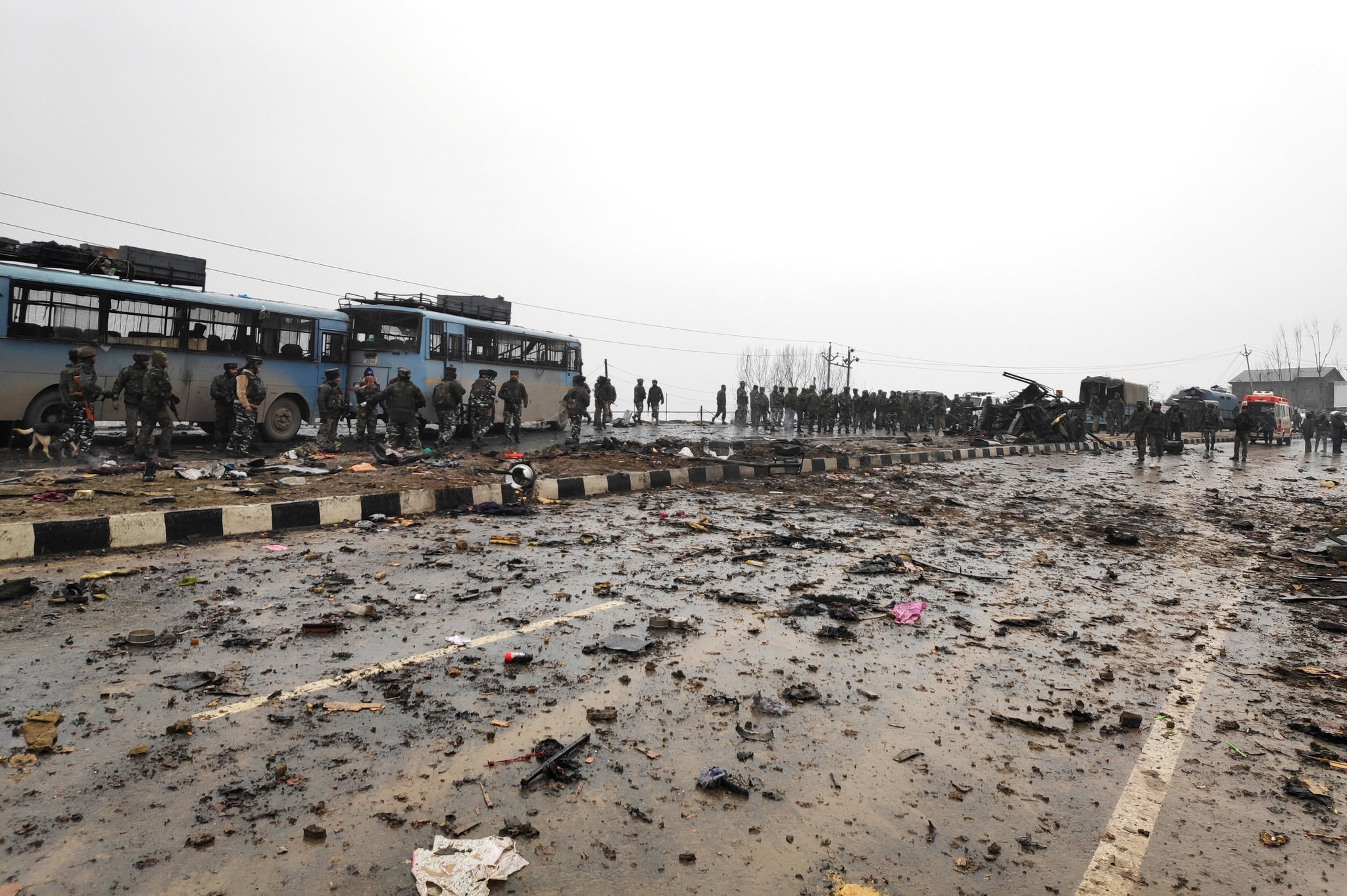


Delhi's ruling party, AAP, has announced a scholarship scheme for Dalit students hoping to pursue higher education abroad. With the upcoming assembly polls in mind, party chief Arvind Kejriwal presented this initiative at the party headquarters, with other party leaders in attendance. Meanwhile, the BJP gears up for the elections by shortlisting candidates and stating that the manifesto will be shaped based on the feedback received from the people of Delhi. Additionally, AAP's door-to-door campaign aims to register beneficiaries under two prominent welfare schemes.
Delhi's AAP and BJP Gear Up for Assembly Polls: Dalit Scholarship Scheme and Candidate Shortlisting
With the upcoming assembly polls in Delhi approaching, both the ruling Aam Aadmi Party (AAP) and the opposition Bharatiya Janata Party (BJP) have commenced their campaigns and announced strategic initiatives to woo voters.
AAP's Dalit Scholarship Scheme
In a significant move, AAP chief Arvind Kejriwal unveiled a scholarship scheme for Dalit students aspiring to pursue higher education abroad. This initiative is part of the party's ongoing efforts to address social inequalities and provide educational opportunities to marginalized communities.
The scholarship will cover tuition fees, living expenses, and other study-related costs up to Rs. 15 lakh per year. Students from Delhi who have completed their graduation or post-graduation with at least 75% marks and have been accepted into a recognized foreign university are eligible to apply.
BJP's Candidate Shortlisting and Manifesto Shaping
Meanwhile, the BJP has initiated the process of shortlisting candidates for the assembly polls. According to party sources, the selection criteria will prioritize local leaders with a strong connect with voters and a proven track record of public service.
Additionally, the BJP has stated that its election manifesto will be shaped based on feedback received from the people of Delhi. The party has set up a dedicated channel for citizens to share their suggestions and prioritize issues that they believe should be addressed by the next government.
AAP's Door-to-Door Campaign
As part of its campaign strategy, AAP has launched a door-to-door campaign aimed at registering beneficiaries under two welfare schemes: the 'Mukhyamantri Covid-19 Pariwar Arthik Sahayata Yojana' and the 'Mukhyamantri Tirth Yatra Yojana.' Under the former scheme, families who lost a member due to COVID-19 will receive financial assistance, while the latter scheme provides free pilgrimage tours for senior citizens.
Top 5 FAQs on Dalit Scholarship Scheme and Assembly Polls
1. Who is eligible for the Dalit scholarship scheme? Dalit students from Delhi who have completed graduation or post-graduation with 75% marks and have been accepted into a recognized foreign university
2. What is the coverage of the scholarship? Up to Rs. 15 lakh per year, covering tuition fees, living expenses, and other study-related costs
3. How can I apply for the scholarship? Detailed eligibility criteria and application procedures will be released in due course
4. When will the assembly polls be held in Delhi? The exact date is yet to be announced, but it is expected to be in February or March 2025
5. Which party has been in power in Delhi since 2015? Aam Aadmi Party (AAP)

The Indian National Congress (INC) has announced its plans to launch a month-and-a-half-long campaign in Jammu and Kashmir on April 22. The purpose of the campaign is to demand the restoration of statehood and to further the “Save the Constitution” movement. With the recent appointment of Syed Naseer Hussain as the new J&K in-charge, the party hopes to regain its lost support in the Union Territory. This campaign comes at a crucial time, as former supporters of the Congress leader Ghulam Nabi Azad have recently dissolved their party, raising questions about their political future. The Congress hopes to use this opportunity to highlight the BJP's failures in empowering elected governments and its betrayal over statehood.

Thousands of citizens in Pune are rallying together through an online petition to demand the protection of their city's hills and hill slopes from any construction. The petition is addressed to the former Pune Municipal Commissioner and Chairman of the state-appointed Committee on Bio-Diversity Park and Hill Top Hill Slopes. The citizens are concerned that the committee's review may result in allowing construction on the hills, while strict measures have already been mandated by the government to prevent it. The citizens stress the importance of preserving these natural areas for the city's ecological balance and urge the government to uphold its promise to future generations.

After the devastating terror attack in Pahalgam, Jammu and Kashmir, India has suspended the 1960 Indus Waters Treaty with Pakistan. This decision was made during a key meeting chaired by Union Home Minister Amit Shah, with discussions on potential actions being taken against Pakistan. As tensions between the two countries continue to escalate, Indian leaders have condemned Pakistan for their involvement in the attack and have vowed to take strong measures in response.

The Indian Army made its first major move since the Pahalgam terror attack on April 22, as they killed top Lashkar-e-Taiba (LeT) commander Altaf Lalli in an encounter in Jammu and Kashmir's Bandipora district. The security forces are on the hunt for the terrorists responsible for the brutal killing of 26 civilians and have launched a massive anti-terror operation. In other developments, Indian Army Chief General Upendra Dwivedi visited Srinagar for a security review meeting and the authorities demolished the houses of two suspected terrorists involved in the Pahalgam attack.

In a hearing at the Supreme Court, the bench rebuked Congress leader Rahul Gandhi for his "irresponsible" comments about freedom fighter Vinayak Damodar Savarkar. The judges highlighted the need to show respect for India's freedom fighters and questioned whether Gandhi was aware of his grandmother and Mahatma Gandhi praising Savarkar. The court also stayed an Allahabad High Court order that refused to dismiss a lower court's summons against Gandhi over his alleged remarks about Savarkar.

The Supreme Court has stepped in to warn Congress MP Rahul Gandhi over his comments about India's independence activist Veer Savarkar, staying a trial court's summons to the politician. The top court emphasized that Savarkar is a highly respected figure in Maharashtra and stated that no one would be allowed to make derogatory remarks about freedom fighters. The court also pointed out that Gandhi's family has had a history of praising Savarkar and Gandhi himself has been warned that the court will take suo motu cognizance of any such remarks. Additionally, the article also mentions an attack in Jammu and Kashmir that has led to heightened tensions between India and Pakistan.

In a successful operation by the security forces, a Lashkar-e-Taliba (LeT) terrorist associate, identified as Altaf Lalli, was killed in an ongoing encounter in the Bandipora district of Jammu and Kashmir. The encounter began after the security forces received intelligence about the presence of terrorists in the area. Two security personnel have also been injured in the exchange of fire and are currently undergoing treatment at a nearby hospital. The clash highlights the continued efforts of the security forces to combat terrorism in the region.

The Telangana-Chhattisgarh border is a hotbed of tension as security forces step up their efforts to root out Maoist activity from the region. Top Maoist leader Hidma is the target of current high-security operations, with forces strategically advancing through previously inaccessible areas. With mounting pressure, sources indicate that the hold of the Maoists in the region is gradually weakening, making for a tense and critical situation.

As the nation grapples with the aftermath of a terror attack in Pahalgam, security forces are undertaking a massive operation in the dense Karregutta hills forest to eliminate the heart of Naxal command. This operation, involving 7,000 personnel and cutting-edge technology, aims to strike a blow at Naxalism by targeting top leaders of the PLGA Battalion No. 1. This bold move by the CRPF, with the Director General personally overseeing the operation, marks a turning point in the fight against Maoist insurgency. With five Naxals already killed and more likely to come, the operation is being hailed as a decisive victory and could potentially spell the end of Naxalism in India.

The US Government has publicly criticized The New York Times for its reporting on the recent terror attack in Pahalgam, Kashmir, calling attention to the difference between the newspaper's use of "militant" instead of "terrorist." This choice of words is not only misleading but also minimizes the severity of the attack, which was claimed by a Pakistan-based group with links to Lashkar-e-Taiba. The US House Foreign Affairs Committee took to social media to point out the error and highlight the real nature of the attack, noting that it has significant implications for regional security.